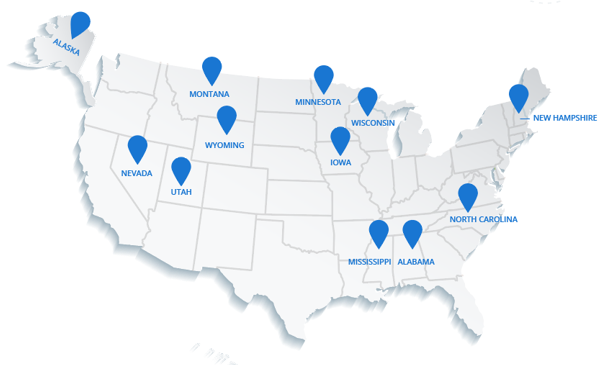What is NPI (National Provider Identifier Number) registry and its Importance?
What is an NPI used for?
A unique NPI identifier is used for HIPAA transactions. Here are some examples:
- Consulting in the field of payments and transfers
- Claims status
- Coordination of benefits
- Entitlements and meeting information
- Eligibility, enrollment, and opt-out.
- Referrals and Authorizations
- Premium payment
What is an NPI number?
An NPI number is a 10-digit numeric identifier used to identify an individual healthcare provider or entity. It is shared with other providers, employers, health plans, and payers through the NPI Registry.
There are two types of number assignments: Type 1 providers and Type 2 providers. Type 1 includes individuals such as tradespeople, dentists, doctors, and surgeons. The provider is entitled to one number. Type 2 NPIs are organizations and may include acute care facilities, health systems, hospitals, physician groups, assisted living facilities, and health care providers that are incorporated.
Who needs an NPI number?
If you are a HIPAA-covered provider or if you are a health care provider or contractor that bills federally funded programs for your services, you must have an NPI number. Providers need this before enrolling in Medicare.
The assignment of an NPI number is not required for the provider to practice medicine. A healthcare provider that is not covered by HIPAA, has opted out of Medicare/Medicaid, and/or takes absolutely no third-party payments may not receive them.
What does an NPI number do?
The National Standard for Electronic Health Care Transactions simplifies processes and reduces the administrative burden on health care providers.
How do you apply for an NPI number?
To complete the online application, you must first obtain an Identity & Access (I&A) User ID. You may obtain this User ID by accessing https://nppes.cms.hhs.gov and completing steps 1-4 below:
- Select the Create a Login link on the Individual Provider side of the National Plan and Provider Enumeration System (NPPES) home page.
- Note: You will be redirected to the I&A website.
- Follow the instructions to complete your I&A registration.
- Once you have successfully obtained your I&A User ID, you can return to the NPPES home page and log into the NPPES website using your newly created I&A User ID.
- Select Submit a new NPI application to start the NPI application process.
How much is an NPI number?
You can obtain an NPI for free by applying online or by contacting an NPI Enumerator to request a paper application. The online application approval process usually only takes a few minutes. And they say nothing is free anymore!
Is the NPI database updated?
The information in the NPI database is usually updated manually or if you request a different number. It does not update automatically. So, if you get a new state license or leave residency or fellowship, "it" won't know. Like LinkedIn, providers must update their profiles to keep them current.
What information is stored in the NPI database?
The NPI search database contains the following information:
- NPI number
- Position
- Provider type
- Number type
- Date of enumeration
- Date last updated
- License
- Hospital affiliations
- Specialties
If you get a new license, do you have to update your NPI number manually?
Yes. If you want your NPI profile to reflect your new license, you must log into the NPI database and enter it yourself.
Will my NPI number change?
Once the provider receives their number, it will not change regardless of whether you change your job or location.
When can I get an NPI number?
You must apply for an NPI number before enrolling in Medicare. Medicare will deny your application if you do not already have an active number. If you are a HIPAA-covered entity, you must have one.
A HIPAA Covered Entity is:
A health care provider that conducts certain transactions electronically
Information center for healthcare
Health plan (including commercial plans, Medicare and Medicaid)
Under HIPAA, you are a covered healthcare provider if you electronically transmit health information in connection with a standard HIPAA transaction, even if you use a business associate to do so.
.png?width=50&height=50&name=Cube-Logo-150x150%20(1).png)
March 11, 2023




Comments